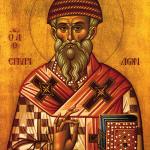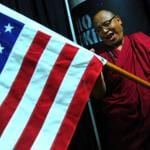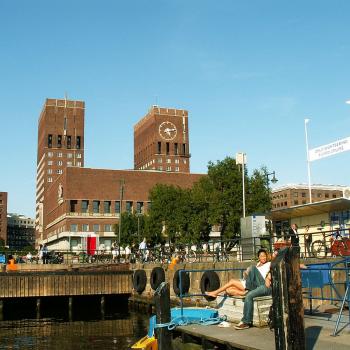If that seems like psycho-babble, well, it sort of is. Land is like every jargonistic professor of English you’ve heard about, but he’s using all those strange words and impenetrable thinkers to imagine a new, cybernetic world organized along pseudo-fascist lines, one he imagines must follow ours, traditional socialism having shown itself to be a pipe dream.
This might seem like something of a detour. Did the shooter even know anything about Land? It’s not clear. But it is clear that he emerges from a similar digital miasma. Perhaps he was trolling us, trying to elicit some reaction (get the fight on gun ownership started once again, stoke racial and ethnic hatred, show how immigrants, i.e. he, can be violent, etc.). But these cynical, ironic, even paradoxical gestures must always have some actual end goal—very rarely, if ever, is it merely nihilism. And here we can see that his end goal is a different kind of future, a fascistic one organized around principles of ethnic and culture homogeneity. This is why he can admire China after all, not because he loves Marx, but because he respects that country’s authoritarianism and commitment to producing a Han Chinese-dominated, culturally-singular state. To understand where he comes from—with Land as just one example—is to begin to peel away the simple moniker “troll” and to take seriously the confused ideologies that stand behind such atrocities.
At this point, it’s also worth noting that this is why he is not merely a troll. His manifesto is rife with Right-wing internet speak. He wanted to elicit a specific reaction from Western media. That’s all true. But characterizing him in this way risks allowing us to write him off. “It’s psychotic childishness, infantile fantasy.” It may be these things. But as we have seen such views can lead to violent actions. Moreover, these are extant and growing political ideologies, stewing and burbling; they represent one path—however twisted—that many might wish to see pursued in the future.
For some, it is an alternative to an ailing Liberalism. Many ideologies will compete as we move forward. Lots of people think the world as we know it is dying for any variety of reasons—digitalization, eroding democratic norms, climate change, mass migration. Take your pick. We have to take it seriously as one of these—dissect it and come to know what makes it tick. Merely laughing it off is immature.
Christianity can offer a competing story—one that has learned from its ancient roots, weathered modernity, and pressed on. Christianity is, of course, not a political program. It does, however, imply a universalism that looks beyond culture to unity in faith. We Christians are neither Greek nor Jew, servant, nor free. Our faith, in other words, is not limited by ethnic group, nor can it (or does it) privilege specific homelands and specific peoples. It may recognize the justness of certain customs, but it can never allow us to place these and the ways of life associated with them above the universal call. In this sense, Christianity is the original universalism—at least in the West.
As temptations grow in the possibly post-Liberal era, we must keep this in mind. Christians may see different paths forward, but none of these should include a retreat into particularity over and against the unity of faith, the mystical Body of Christ that knits us all together.
This sounds vague. Perhaps it is. Nevertheless, it is fundamental. Taking it to heart is a guard against the pressures of cultural supremacism. The future is uncertain; many are desperate to know what will come next. Some are even desperate to give birth to whatever it will be. We cannot let this lust for worldly wisdom overcome us.
The shooter wrote that he didn’t know if he was a Christian. We must proclaim loudly and clearly that we are.













